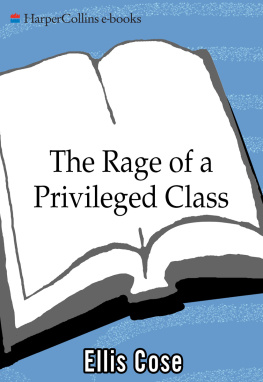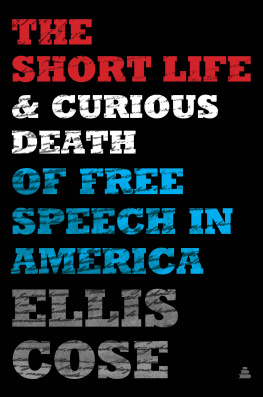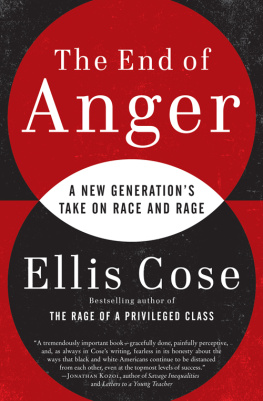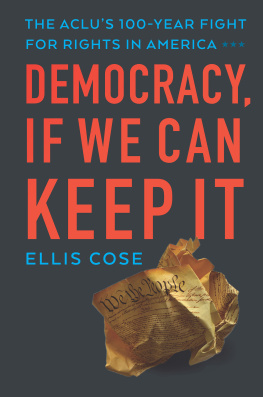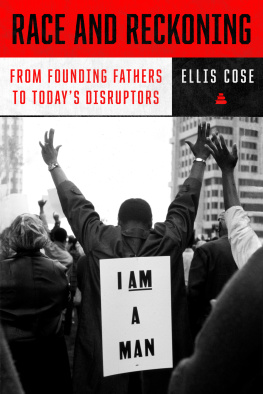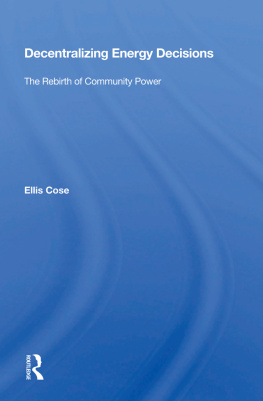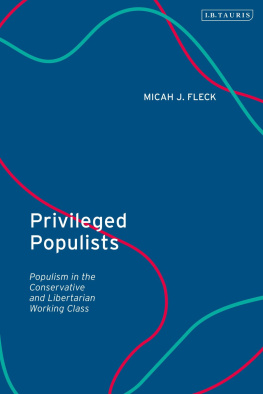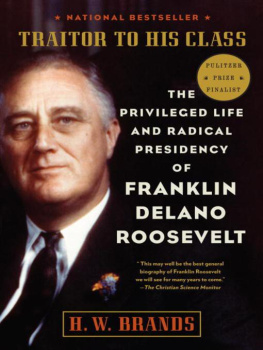D ESPITE ITS VERY EVIDENT PROSPERITY, MUCH of Americas black middle class is in excruciating pain. And that distressalthough most of the country does not see itilluminates a serious American problem: the problem of the broken covenant, of the pact ensuring that if you work hard, get a good education, and play by the rules, you will be allowed to advance and achieve to the limits of your ability.
Again and again, as I spoke with people who had every accouterment of success, I heard the same plaintive declarationalways followed by various versions of an unchanging and urgently put question. I have done everything I was supposed to do. I have stayed out of trouble with the law, gone to the right schools, and worked myself nearly to death. What more do they want? Why in Gods name wont they accept me as a full human being? Why am I pigeonholed in a black job? Why am I constantly treated as if I were a drug addict, a thief, or a thug? Why am I still not allowed to aspire to the same things every white person in America takes as a birthright? Why, when I most want to be seen, am I suddenly rendered invisible?
What exactly do such questions mean? Could their underlying premise conceivably be correct? Why, a full generation after the most celebrated civil rights battles were fought and won, are Americans still struggling with basic issues of racial fairness? This book attempts to provide some possible answers. And in exploring why so many of those who have invested most deeply in the American dream are consumed with anger and pain, I hope to show how certain widespread and amiable assumptions held by whitesspecifically about the black middle class but also about race relations in generalare utterly at odds with the reality many Americans confront daily.
That the black middle class (and I use the term very loosely, essentially meaning those whose standard of living is comfortable, even lavish, by most reasonable measures) should have any gripes at all undoubtedly strikes many as strange. The civil rights revolution, after all, not only killed Jim Crow but brought blacks more money, more latitude, and more access to power than enjoyed by any previous generation of African Americans. Some blacks in this new era of opportunity have amassed fortunes that would put Croesus to shame. If ever there was a time to celebrate the achievements of the color-blind society, now should be that time.
Joe Feagin, a sociologist at the University of Florida, observed in a paper prepared for the U.S. Commission on Civil Rights that most whites believe that blacks no longer face significant racial barriers. From this white perspective employment discrimination targeting black Americans is no longer a serious problem in the United States. The black middle class, in particular, has largely overcome job discrimination and is thriving economically. Only the black underclass is in serious trouble, and that has little to do with discrimination. Indeed, many people believe the tables have turned so far that whites are more likely to be victimized by discrimination than blacks.
At an early stage of my work, I outlined the thesis of this book to Daniel Patrick Moynihan, senior senator from New York and celebrated scholar of ethnicity. Moynihan made the counterargument succinctly. The black middle class, he noted, was moving along very well. And he had every expectation that it would continue to do so. Indeed, with so many black mayors and black police chiefs in place, blacks represented, to many new arrivals, Americas power establishment. The big problem, added Moynihan, is, What are we going to do about the underclass? And a particular problem is that [the] black group youre talking about [the middle class] doesnt want to have anything to do with them.
Certainly one can show statistically that black married-couple families with wives in the paid labor force (as categorized by the U.S. Census Bureau) do not make that much less than comparably stratified whites. Such households, which earn slightly over 80 percent as much as similar white households, are arguably within striking distance of economic parity. One can empathize with Moynihans pique when he reflects on the public reaction to his famous 1970 memorandum to Richard Nixon pointing out that young two-parent black families in the Northeast were progressing nicely and suggesting that perhaps race could benefit from a period of benign neglect. I went through hells own time, recalls Moynihan.
But whatever such aggregate statistics may show, they do not demonstrateand cannotthat hiring has become color-blind. As Andrew Hacker observes in Two Nations , While there is now a much larger black middle class, more typically, the husband is likely to be a bus driver earning $32,000, while his wife brings home $28,000 as a teacher or a nurse. A white middle-class family is three to four times more likely to contain a husband earning $75,000 in a managerial position. Feagin notes that he has found no [emphasis his] research study with empirical data supporting the widespread white perspective that employment discrimination is no longer serious in the U.S. workplace.
In lieu of scientific research, we are offered speculation and conjecture, self-congratulatory theories from whites who have never been forced to confront the racial stereotypes routinely encountered by blacks, and whojudging themselves decent people, and judging most of their acquaintances decent as wellfind it impossible to believe that serious discrimination still exists. Whatever comfort such conjecture may bring some whites, it has absolutely no relevance to the experiences of blacks in America.
I am not suggesting that most whites are racist. The majority emphatically are notat least not in any meaningful sense of the word. If a racist is defined as one who hates blacks (or members of any other racial group, for that matter), the number of true racists is very small, and a substantial portion of them are the pathetic sorts of people who call themselves Nazis and glorify the Ku Klux Klan. Even those fanatics tend to be motivated less by racism than by some pathology expressed in racial terms. The point here, however, is that people do not have to be racistor have any malicious intentin order to make decisions that unfairly harm members of another race. They simply have to do what comes naturally.




